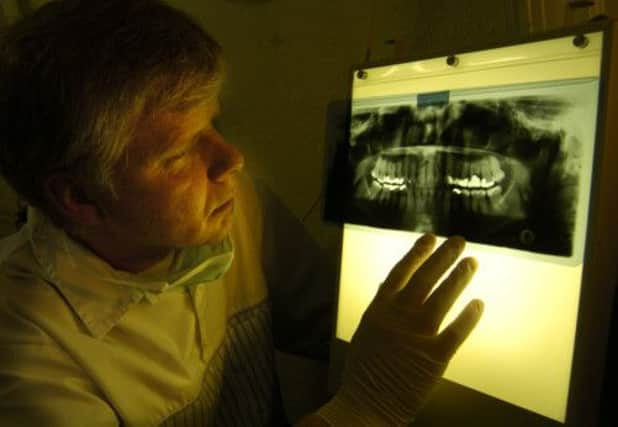Strategies to improve quality of life for those with learning difficulties


Nevertheless, major challenges remain and this is why we welcomed the Scottish Government’s follow-up strategy, The Keys to Life, launched in June 2013.
The strategy acknowledges the demands for more services and support in a wide range of circumstances. It particularly recognises the importance of human rights and therefore the need to better protect and enhance the rights of children and adults with Down’s syndrome.
Advertisement
Hide AdAdvertisement
Hide AdA strong emphasis is also put on health, as good health is one of the keys to a good quality of life. Issues like obesity or dementia are affecting the lives of many people in Scotland – among them individuals with Down’s syndrome. We consequently welcome the recommendation for a targeted health screening programme for all people with learning disabilities. This constitutes one of many needed steps in ensuring their wellbeing. We also support the requirement for general hospitals to ensure that patients with learning disabilities receive the appropriate levels of support. In addition, we were pleased to note the proposal that professionals should assist with the implementation of the National Oral Health Improvement Strategy.
It is also important to consider the social aspects of life. Our experience in supporting families across Scotland indicates that problems persist and recommendations on independent living or breaking stereotypes are worth promoting. The annual eSAY data published by the Scottish Consortium for Learning Disability last month highlighted that a significant number of people with learning disabilities now live independently in their own home. This is of course encouraging but we are also aware that some of our members are still struggling to secure accommodation that suits their needs.
The eSAY publication also points out that there is a slight decrease in the number of individuals who use Local Area Co-ordination services and we therefore support the review of the role of Local Areas Co-ordinators recommended by the new strategy. Furthermore, the statistics show that there is a decline in the number of adults with learning disabilities enrolled in a further education course and in the proportion of adults in employment or training for employment.
Support to people with Down’s syndrome varies greatly
These figures are alarming in challenging economic times as we know that finding employment remains difficult and that places in colleges are being cut. Consequently, focusing on smoother transition pathways and developing employment opportunities as suggested by the new strategy should be broadly supported.
However, the political devil is likely to lie in the “implementation” details. Many of the recommendations rely on the establishment of enhanced partnerships, essentially between the Scottish Government, local authorities and NHS boards. Support available to people with Down’s syndrome and their carers already varies greatly across the 32 local authorities with excellent practice in some and very poor services in others. Since current services are not always adequately delivered, it is difficult to see how new proposals may be successfully implemented in all local authorities. In fact, the situation can only deteriorate if individuals continue to be faced with a “postcode lottery” in terms of access to services.
On that note, we welcome the Convention of Scottish Local Authorities’ commitment to deliver The Keys to Life and look forward to seeing more localities providing essential services to people with Down’s syndrome wherever they live. Moreover the third sector has a significant role to play in ensuring that children and adults with learning disabilities, and their carers, are better supported. Down’s Syndrome Scotland is committed to work with the Scottish Government and its partners to deliver and monitor the proposed, necessary changes. Down’s Syndrome Scotland supports The Keys To Life and its intentions, and we urge all involved to work towards implementing the strategy. It is also crucial that addressing health inequalities and enhancing the protection of human rights remain high on the political agenda. Issues surrounding the independence referendum will undoubtedly gain momentum and it is important that people with Down’s syndrome and their families get the opportunity to contribute to the debate on the kind of Scotland they want to live in. Improving quality of life for people with learning disabilities raises concerns that should be tackled now.
• Rachel Le Noan is policy officer of Down’s Syndrome Scotland www.dsscotland.org.uk